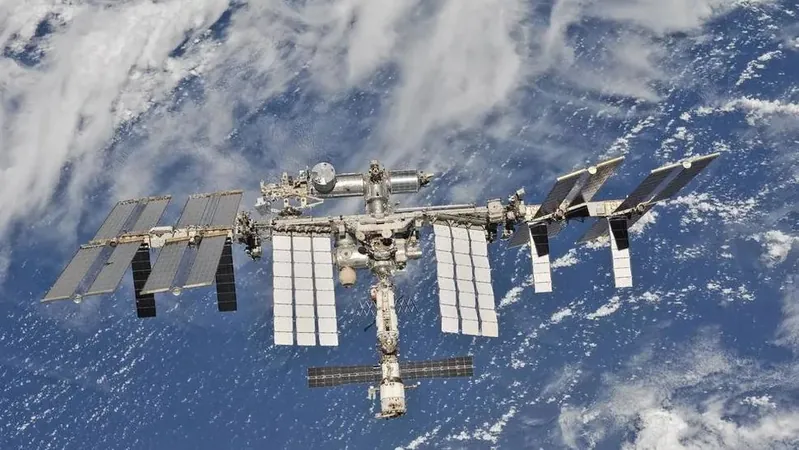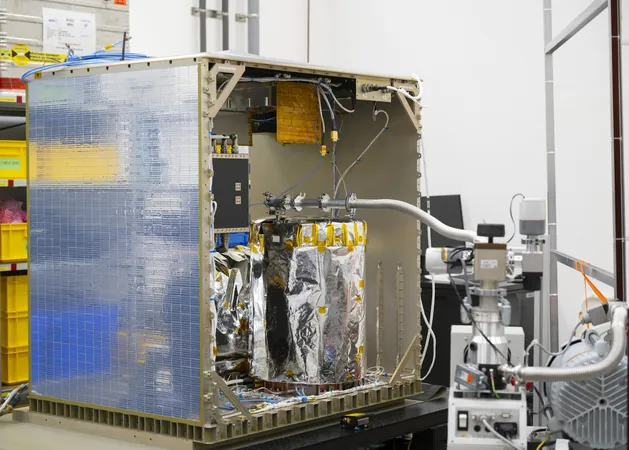
Ongoing ISS Leak Sparks Tensions Between NASA and Russia: What You Need to Know!
2024-11-15
Author: William
Overview of the Situation
NASA and the Russian space agency Roscosmos are facing significant disagreements regarding a critical leak in the International Space Station (ISS) that has persisted for five years. According to recent statements from Bob Cabana, chair of the ISS advisory committee and a former astronaut, the two agencies differ on the risk levels posed by the leak, as well as its causes and potential solutions.
Differing Perspectives on the Leak
Cabana highlighted that Roscosmos downplays the severity of the situation, believing that catastrophic failure of the Russian PrK module is unlikely. In contrast, NASA has raised alarms over the structural integrity of the module, expressing concerns that continued operation could lead to severe risks.
Status of the Leak
The leak, which has been a lingering issue in the Russian segment of the orbiting laboratory, saw a temporary increase in severity earlier this year but was subsequently patched. NASA has reassured the ISS crew that they are not in immediate danger. However, a NASA audit released on September 26 identified the ongoing leak as the top safety risk to the ISS, emphasizing the importance of addressing the issue promptly.
Aging Infrastructure
As the ISS is aging—some of its components date back to 1998—maintenance challenges are expected. Despite ongoing troubleshooting efforts, Cabana stated that there is a lack of a unified perspective between NASA and Roscosmos regarding the underlying causes of the leaks.
Proposed Causes by NASA and Roscosmos
Roscosmos attributes the cracks to high cycling caused by micro-vibrations, which occur as metallic components expand and contract with temperature fluctuations. Meanwhile, NASA suggests that multiple factors, including pressure, mechanical stress, and material degradation from environmental exposure, are contributing to the issue.
Safety Measures Implemented
With safety concerns at the forefront, a temporary measure has been implemented to keep the hatch between the U.S. and Russian sections closed while investigations are conducted. Both agencies have committed to further discussions to share insights and establish a mutual understanding of the PrK module's structural integrity, although no timeline for resolution has been provided.
Geopolitical Context
This clash comes amid a backdrop of heightened geopolitical tensions following Russia's invasion of Ukraine in 2022, which severely impacted international collaboration in space. Despite these challenges, NASA and Roscosmos remain key players in the ISS program, a testament to the indomitable spirit of scientific exploration.
Future of the ISS Program
It’s worth noting that Russia has already announced plans to exit the ISS partnership as early as 2028, while other partner nations are committed to its operation until 2030.
Conclusion and Outlook
As the situation develops, experts from academia and industry will likely play pivotal roles in providing insights and potential solutions for this ongoing conundrum. The stakes are high not just for the future of the ISS, but for collaborative space efforts globally. Stay tuned for updates as this story unfolds!









 Brasil (PT)
Brasil (PT)
 Canada (EN)
Canada (EN)
 Chile (ES)
Chile (ES)
 España (ES)
España (ES)
 France (FR)
France (FR)
 Hong Kong (EN)
Hong Kong (EN)
 Italia (IT)
Italia (IT)
 日本 (JA)
日本 (JA)
 Magyarország (HU)
Magyarország (HU)
 Norge (NO)
Norge (NO)
 Polska (PL)
Polska (PL)
 Schweiz (DE)
Schweiz (DE)
 Singapore (EN)
Singapore (EN)
 Sverige (SV)
Sverige (SV)
 Suomi (FI)
Suomi (FI)
 Türkiye (TR)
Türkiye (TR)